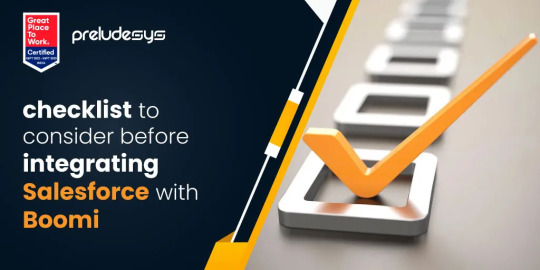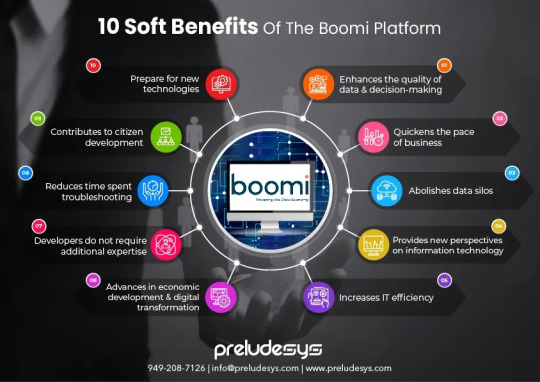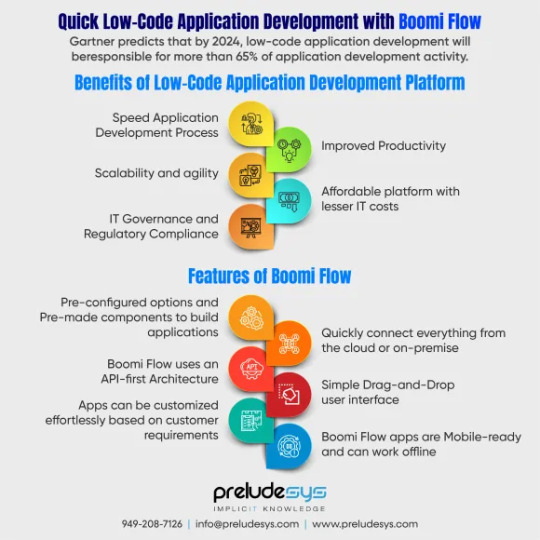Unlock the potential of technology and business with PreludeSys. Explore thought-provoking insights, industry updates, and expert perspectives on innovation, digital transformation, and beyond. Join us on a journey of knowledge, discovery, and excellence in the tech realm.
Don't wanna be here? Send us removal request.
Text
Top AI Trends in Medical Record Review for 2025 and Beyond
When every minute counts and the volume of documentation keeps growing, professionals handling medical records often face a familiar bottleneck—navigating through massive, redundant files to pinpoint crucial medical data. Whether for independent medical exams (IMEs), peer reviews, or litigation support, delays, and inaccuracies in reviewing records can disrupt decision-making, increase overhead, and pose compliance risks.
That's where AI is stepping in—not as a future solution but as a game changer.
From Data Overload to Data Precision
Manual review processes often fall short when records include thousands of pages with duplicated reports, handwritten notes, and scattered information. AI-powered medical records review services now bring precision, speed, and structure to this chaos.
AI/ML model scans entire sets of medical documents, learns from structured and unstructured data, and identifies critical data points—physician notes, prescriptions, lab values, diagnosis codes, imaging results, and provider details. The system then indexes and sorts records according to the date of injury and treatment visits, ensuring clear chronological visibility.
Once organized, the engine produces concise summaries tailored for quick decision-making—ideal for deposition summaries, peer reviews, and IME/QME reports.
Key AI Trends Reshaping 2025 and Beyond
1. Contextual AI Summarization
Summaries are no longer just text extractions. AI models are becoming context-aware, producing focused narratives that eliminate repetition and highlight medically significant events—exactly what reviewers need when building a case or evaluating medical necessity.
2. Intelligent Indexing & Chronology Sorting
Chronological sorting is moving beyond simple date alignment. AI models now associate events with the treatment cycle, grouping diagnostics, prescriptions, and physician notes by the injury timeline—offering a cleaner, more logical flow of information.
3. Deduplication & Version Control
Duplicate documents create confusion and waste time. Advanced AI can now detect and remove near-identical reports, earlier versions, and misfiled documents while preserving audit trails. This alone reduces review fatigue and administrative overhead.
4. Custom Output Formats
Different reviewers prefer different formats. AI-driven platforms offer customizable outputs—hyperlinked reports, annotated PDFs, or clean deposition summaries—ready for court proceedings or clinical assessments.
Why This Matters Now
The pressure to process records faster, more accurately, and at scale is growing. Workers' comp cases and utilization reviews depend on fast and clear insights. AI-powered medical records review service providers bring the tools to meet that demand—not just for efficiency but also for risk mitigation and quality outcomes.
Why Partner with an AI-Driven Medical Records Review Provider?
A reliable partner can bring scalable infrastructure, domain-trained AI models, and compliance-ready outputs. That's not just an operational upgrade—it's a strategic advantage. As the demand for faster, more intelligent medical records review services grows, those who invest in AI-driven solutions will lead the next phase of review excellence.
0 notes
Text
How AI is Rewriting the Rules of Medical Record Review in Workers’ Compensation
Every stakeholder involved in workers’ compensation claims knows the toll that manual medical record reviews take on time, accuracy, and productivity. Sorting through thousands of pages with duplicates, illegible notes, and irrelevant data often results in delays, inconsistent interpretations, and ballooning review costs. For professionals involved in Independent Medical Examinations (IMEs), Qualified Medical Evaluations (QMEs), peer reviews, and litigations, this process is not just time-consuming—it’s unsustainable.
Enter AI: Built for Complexity, Trained for Precision
AI-powered medical records review services rapidly change how records are accessed, organized, and interpreted. At the heart of these solutions lies a robust AI/ML model specifically trained on medical data. It does more than just read—it understands.
The system extracts relevant information from physician notes, lab results, diagnostic imaging reports, prescriptions, and provider details. It maps each data point against the date of injury and visit sequence, enabling reviewers to see a clean chronological view of the claimant’s medical journey. The result? A concise, easy-to-navigate summary without clutter.
Indexing, Chronology, Summarization—Done Instantly
Instead of scrolling through disjointed PDF scans or flipping between unindexed files, professionals now receive organized outputs featuring:
AI-based indexing for fast navigation
Chronological sorting aligned with each date of service
Concise summarization capturing key events, interventions, and outcomes
Deposition-ready summaries tailored for legal and peer review contexts
This structured clarity helps reduce review times and increases confidence in decision-making.
Accuracy Without Burnout
AI does not fatigue. It doesn’t overlook details or get swayed by information overload. By leveraging machine learning, it continues to improve over time, adapting to nuances and provider-specific documentation patterns. The result is a smarter system that ensures no critical record goes unnoticed, no redundant page stays in the file.
Why the Shift Matters
Workers’ compensation claims often involve multiple providers, repeated diagnostics, and overlapping records. Traditional review methods fall short when it comes to navigating this complexity. AI fills this gap by turning a tedious process into a streamlined, intelligent workflow.
Why Partner with an AI-Powered Medical Records Review Service Provider
Choosing the right partner means more than just adopting a new technology. It means tapping into a service model that understands the intricacies of your work, values speed without compromising precision and can scale based on your volume. With AI summarization, indexing, and chronology at its core, the right provider delivers more than just reviewed records—it delivers clarity.
0 notes
Text
The Growing Role of AI in EHR Data Extraction and Summarization
The volume of medical records tied to each case has grown rapidly, often stretching across hundreds or even thousands of pages. Whether it’s for an IME, peer review, or litigation, teams struggle to extract what truly matters from these records in a short time. Reviewing physician notes, tracing visits back to the date of injury, identifying relevant prescriptions, and making sense of repetitive or redundant data takes time—and that’s time not many professionals can afford.
Why Traditional Methods Fall Short
Legacy approaches—manual sorting, highlighting, and summarization—fail to keep pace with the growing data volume and complexity. Errors increase. Timelines extend. And the pressure to deliver accurate deposition summaries or chronologies continues to mount. That’s where AI has stepped in to support human reviewers and accelerate the entire process while enhancing precision.
How AI-Powered Models Transform Record Review
AI-powered medical records review services use purpose-built machine learning models trained to scan and understand complex clinical documentation. These models don’t just look for keywords—they interpret context across various record types.
The model captures:
Physician notes and diagnoses
Visit history tied to the date of injury
Prescription patterns
Lab reports and imaging
Provider names and facility details
Once captured, the model indexes the records, identifies duplications, sorts events chronologically, and isolates information relevant to the case. Instead of wading through hundreds of pages, the reviewer receives structured, organized content tailored to their specific use case, including summaries and medical chronologies.
AI Summarization That Saves Hours
The true advantage of AI summarization lies in its ability to deliver concise, actionable insights. Rather than sifting through bulk data, teams receive focused outputs: event-based indexing, date-sorted records, and clear summaries. These insights are dependable input for IMEs, QMEs, or legal depositions.
Why Work with an AI-Powered Medical Records Review Service Provider?
Expertise in medical data handling alone isn’t enough. A capable partner must also bring AI capability—trained systems, consistent processes, and experienced reviewers who understand integrating technology with nuanced case requirements.
By partnering with the right provider, organizations can reduce review turnaround time, improve accuracy, and ensure their experts receive records in the format they prefer. The result? Higher-quality outcomes with lower administrative burden.
AI is not a future tool. It’s already redefining how the best medical records review service providers deliver value.
#ai medical records review#medical records#medical billing#medical summary#medical indexing#social media#healthcare
0 notes
Text
AI-Powered Medical Records Review for IMEs/QMEs: Why It Matters and How It Simplifies Evaluations
IMEs and QMEs often struggle with the time-consuming task of reviewing extensive medical records. Missing critical details can impact the accuracy of evaluations.
AI-powered medical records review changes the game by quickly analyzing large datasets and providing structured summaries. This allows evaluators to focus on accurate assessments instead of paperwork.
For instance, Dr. Emily, a QME, saved hours by adopting an AI tool that highlighted key insights, enhancing her workflow and precision. These tools integrate seamlessly, simplifying processes and improving evaluation quality.
Read more: https://preludesys.com/ai-powered-medical-records-review-for-imes-qmes/
#ai medical records review#medical records#medical records review services#medical billing#medical indexing#medical summary
0 notes












